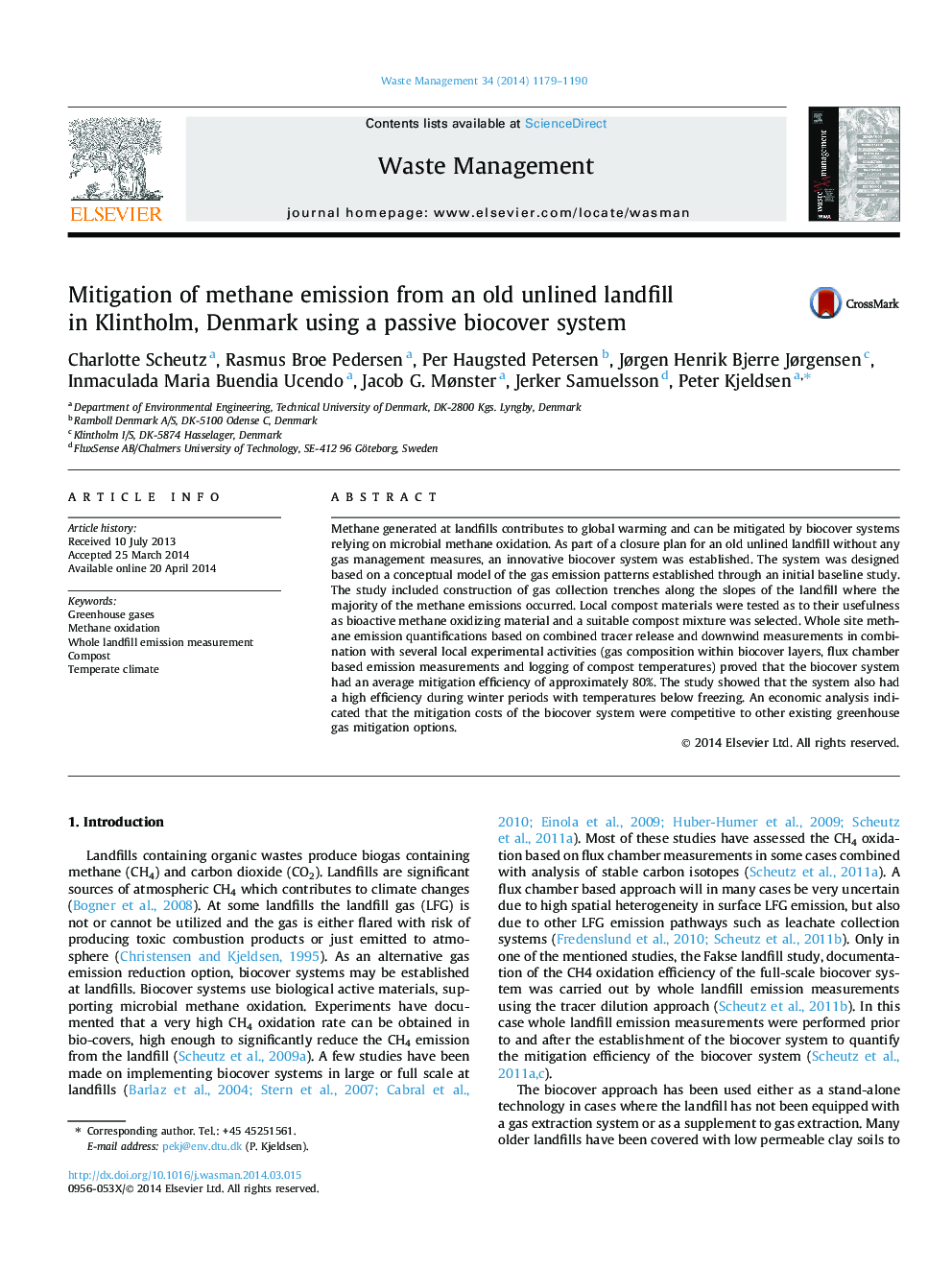| Article ID | Journal | Published Year | Pages | File Type |
|---|---|---|---|---|
| 4471649 | Waste Management | 2014 | 12 Pages |
•An innovative biocover system was constructed on a landfill cell to mitigate the methane emission.•The biocover system had a mitigation efficiently of typically 80%.•The system also worked efficiently at ambient temperatures below freezing.•A whole landfill emission measurement tool was required to document the biocover system efficiency.
Methane generated at landfills contributes to global warming and can be mitigated by biocover systems relying on microbial methane oxidation. As part of a closure plan for an old unlined landfill without any gas management measures, an innovative biocover system was established. The system was designed based on a conceptual model of the gas emission patterns established through an initial baseline study. The study included construction of gas collection trenches along the slopes of the landfill where the majority of the methane emissions occurred. Local compost materials were tested as to their usefulness as bioactive methane oxidizing material and a suitable compost mixture was selected. Whole site methane emission quantifications based on combined tracer release and downwind measurements in combination with several local experimental activities (gas composition within biocover layers, flux chamber based emission measurements and logging of compost temperatures) proved that the biocover system had an average mitigation efficiency of approximately 80%. The study showed that the system also had a high efficiency during winter periods with temperatures below freezing. An economic analysis indicated that the mitigation costs of the biocover system were competitive to other existing greenhouse gas mitigation options.
